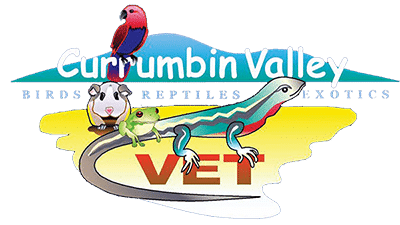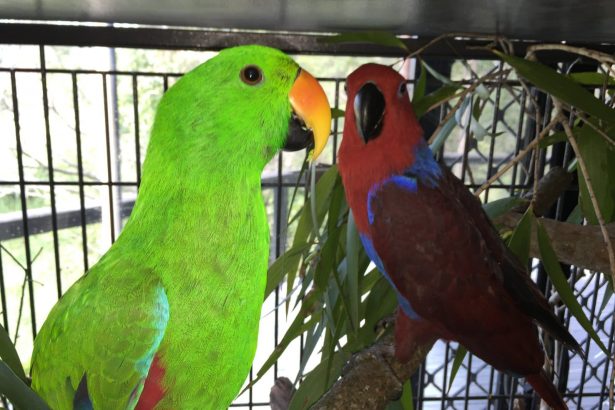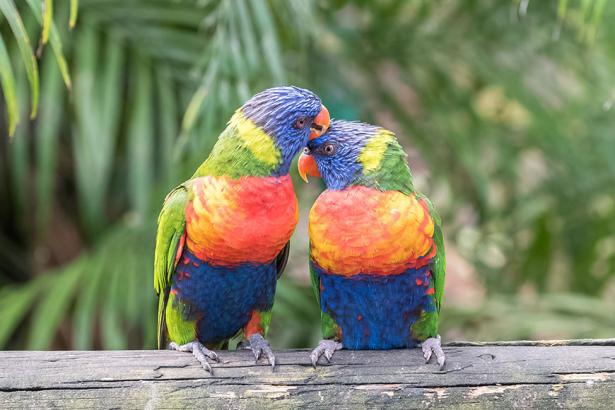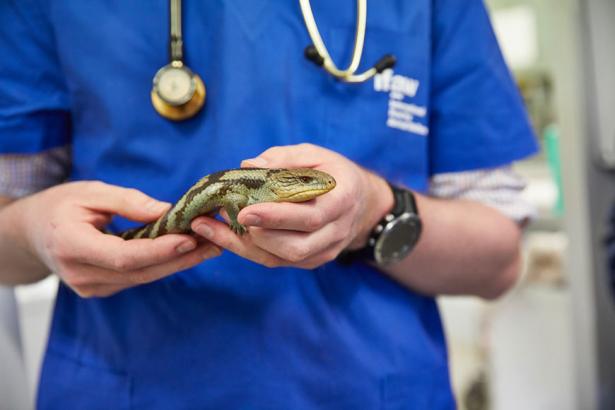With winter soon arriving in Australia, now is the time to start preparing your exotic pets for the cooler change in weather. While our winters may not bring snowstorms, even subtle drops in temperature can have significant effects on health and behaviour – especially for reptiles and birds. Whether you’re caring for a blue-tongue skink or a cockatiel, understanding how to adapt their environment and routine for the colder months is essential.
At Currumbin Vet Services, we specialise in holistic vet care for exotic pets, and we know that seasonal changes can be stressful if not managed carefully. Here’s how to keep your exotic pet warm, healthy, and thriving through winter.
Why Cold Weather Matters for Exotic Pets
Reptiles and birds are ectothermic or partially dependent on external heat sources to regulate their body temperature. A sudden shift in climate – even a cool evening breeze – can leave them vulnerable to a range of health problems.
Reptiles may become lethargic, lose appetite, or even face immune suppression when temperatures drop. Birds, particularly smaller species, can suffer from respiratory illnesses and feather stress if exposed to draughts or unstable room temperatures.
Holistic vets often see a spike in preventable winter ailments simply because pet owners weren’t aware their home environment had changed enough to impact their animals. For a deeper understanding of temperature’s impact, see our blog on Exotic Pet Care: The Do’s and Don’ts of Caring for Exotic Animals.
Heating and Temperature Regulation for Reptiles
Reptiles need a controlled thermal gradient within their enclosure year-round – but in winter, this becomes even more critical. Ambient room temperatures may fall below safe levels, and heat lamps alone may not be sufficient.
Tips for reptile winter care:
- Use thermostats with your heat sources to ensure consistent temperatures day and night.
- Double-check your enclosure’s basking and cool zones. For most Australian reptiles, basking spots should remain between 32–35°C, with a cooler end around 24–26°C.
- Consider adding under-tank heating pads in addition to overhead lights, particularly for nocturnal reptiles.
- Reduce handling during cooler periods, especially if your reptile shows signs of sluggishness or stress.
Remember that reptiles rely heavily on proper temperature to digest food and maintain immune function. Inadequate heating can lead to regurgitation, respiratory infections, or even brumation (a hibernation-like state) that’s unsafe if unplanned.
Protecting Birds from Winter Draughts and Dampness
Birds, while endothermic, are still susceptible to cold environments – especially smaller parrots, finches, and budgies. Feathers provide insulation, but not enough to offset an unheated room or overnight temperature drop.
Winter care tips for bird owners:
- Keep bird cages away from windows, doors, and draughty areas.
- Provide a night cover or cage wrap to reduce exposure to cold air while preserving ventilation.
- Ensure perches are positioned well away from food bowls to avoid contamination from droppings and ensure your bird stays dry.
- Offer warm, moist foods like cooked pumpkin, mashed sweet potato, or soaked pellets to support digestion and energy levels.
- Watch for signs of illness, such as fluffed feathers, reduced vocalisation, or decreased appetite – all potential indicators of a respiratory infection.
Adjusting Light Cycles for Winter
Shorter days can impact your exotic pet’s mood, feeding routine, and breeding cycles. This is especially important for birds and reptiles that rely on circadian rhythms to regulate internal systems.
- Maintain a consistent light cycle with the help of full-spectrum UVB bulbs for reptiles or natural daylight access for birds.
- Avoid long periods of darkness, as this can induce stress or disrupt feeding patterns.
- Check UVB bulb output regularly – even if the bulb still emits visible light, UV radiation often diminishes after 6–12 months and should be replaced accordingly.
Holistic vet care emphasises environmental enrichment and consistency. Providing your pet with a stable photoperiod during winter can prevent behavioural changes and stress-related conditions.
Nutritional Adjustments for the Cold Season
Your exotic pet’s nutritional needs may change in winter. Birds and reptiles often expend more energy staying warm, and some may eat less due to decreased activity.
- Review calcium and vitamin D3 intake, especially for reptiles, as reduced UVB exposure can affect calcium metabolism.
- Boost fresh food offerings for birds, incorporating warm, high-fibre options and avoiding chilled fruit straight from the fridge.
- Hydration remains critical – ensure your pet’s water source doesn’t get too cold, and mist reptiles or birds that benefit from environmental humidity.
If you’re unsure how to balance nutrition in winter, consult a vet holistic in approach – they’ll help you tailor a diet that supports your pet’s immune system and overall wellbeing.
When to Seek Veterinary Advice
Sometimes, despite your best efforts, pets still show signs of discomfort or illness. Winter is a common time for respiratory issues, fungal skin infections in reptiles, and stress-induced behaviours in birds.
Seek veterinary support if you notice:
- Lethargy or unresponsiveness
- Wheezing, sneezing, or nasal discharge
- Loss of appetite for more than a few days
- Weight loss or changes in droppings
- Unusual aggression or withdrawal
At Currumbin Vet Services, we provide holistic care for reptiles, birds, and other exotic pets – including seasonal health checks, nutritional planning, and tailored environmental advice.
Final Thoughts
Winter in Australia may be milder than in other regions, but it still poses unique challenges for exotic pet owners. By proactively adjusting your pet’s habitat, diet, and handling routine, you can prevent many common seasonal issues and help your bird or reptile thrive year-round.
For expert support in reptile and avian winter care, or to book a seasonal wellness consultation, contact Currumbin Vet Services – your trusted partner in exotic animal health.





